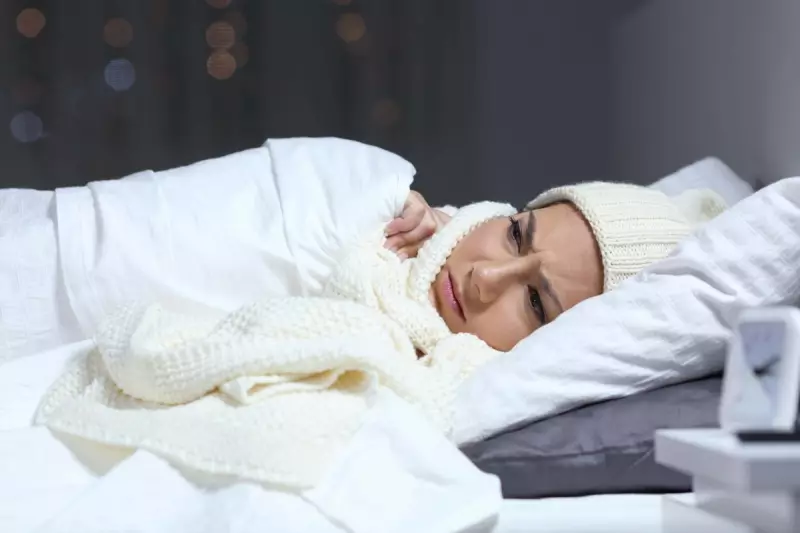
As winter tightens its grip with longer nights and falling temperatures, many across the UK are finding their sleep patterns significantly disrupted. The seasonal shift doesn't just affect our daytime energy levels; it has profound implications for how we rest at night.
From restless nights in chilly bedrooms to waking up feeling unusually groggy, the colder months can interfere with our sleep in numerous unexpected ways. To understand this seasonal phenomenon better, we consulted Dr David Garley, a GP and director of The Better Sleep Clinic.
The Science Behind Body Temperature and Sleep
Dr Garley explains the crucial relationship between body temperature and sleep initiation. "When you transition from wakefulness to sleep within your circadian rhythm, your core body temperature drops by approximately 0.5°C to 1.5°C," he clarifies. This explains why excessive heat can prevent people from falling asleep during summer months.
However, the opposite extreme presents its own challenges. "You want your bedroom to be cool rather than cold," advises Dr Garley. "The ideal temperature varies between individuals, but an excessively cold environment can be just as problematic as an overly warm one."
How Extreme Cold Affects Sleep Quality
When temperatures drop too low, your body prioritises survival over rest. "If you're shivering in bed, your body focuses on maintaining temperature rather than slipping into sleep," Dr Garley notes. This physiological response makes falling asleep nearly impossible until you warm your environment.
Even after falling asleep, cold temperatures can compromise sleep quality. "People often focus solely on sleep duration, but reaching deep sleep stages matters equally," emphasises Dr Garley. Sudden coldness can cause 'arousals' that shift you into lighter, less restorative sleep stages without fully waking you.
He illustrates this with a common experience: "Campers frequently wake around 3am when temperatures plummet dramatically, finding themselves completely frozen."
Winter Illnesses and Mental Health Impacts
Seasonal illnesses introduce additional sleep challenges. "Inflamed airways, runny noses, coughs, and sore throats understandably make falling asleep more difficult," says Dr Garley. These symptoms often increase snoring and can exacerbate existing sleep disorders like obstructive sleep apnea.
The relationship between mental health and sleep becomes particularly relevant during winter. "Research demonstrates that anxiety impedes falling asleep, while depression can cause early morning awakening," Dr Garley explains. "Crucially, this relationship works both ways - poor sleep can actually cause anxiety and depression, creating a self-perpetuating cycle." Seasonal Affective Disorder (SAD) can therefore significantly disrupt sleep patterns.
Practical Solutions for Winter Sleep Problems
Dr Garley offers several evidence-based strategies for maintaining quality sleep during colder months:
Maintain consistent routines: Resist letting seasonal changes dictate your schedule. Staying in control of your daily patterns helps regulate your sleep-wake cycle.
Stay physically active: Exercise builds stronger sleep pressure. If outdoor activity becomes unappealing, find indoor alternatives to maintain momentum.
Use layered bedding: Instead of one heavy duvet, use multiple thinner layers. This allows better temperature regulation throughout the night, preventing middle-of-the-night overheating.
Optimise bedroom temperature: Keep your sleeping environment cool but not cold, adjusting to your personal comfort level.
Seek daylight exposure: Make time for outdoor walks during lunch breaks. Daylight exposure helps maintain consistent circadian rhythms.
Avoid forcing sleep: If sleep proves elusive, get up and engage in relaxing activities until drowsiness returns. "Lying in bed frustrated will independently prevent sleep," cautions Dr Garley.
By understanding how colder weather affects sleep and implementing these practical adjustments, you can navigate winter months while maintaining restorative, quality rest.






